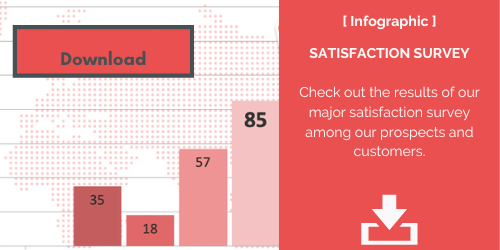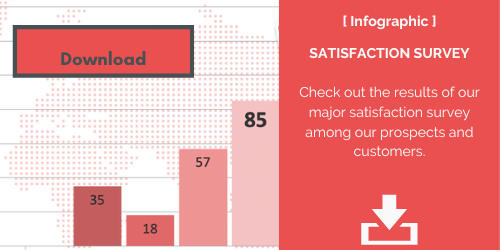Procurement divisions have always played a key role in industry, whereas the strategic value of an organization's relationships with its external stakeholders, especially its suppliers, has often flown under the radar. But those relationships have a direct impact on the company's brand image. The slightest breach of a manufacturing supply agreement could cause production lines to slow down or even grind to a standstill, which ultimately means unhappy end customers. Therefore, the manufacturing industry should jump at the opportunity of investing in a consistent and efficient SRM strategy (Supplier Relationship Management).
The basic principle involves companies taking an overarching approach to how they manage their interactions with their goods suppliers and service providers. This strategy helps improve the process of acquiring industrial consumables and equipment, managing inventory levels and processing materials. In today's world, SRM systems are a sure-fire solution for raising the bar on the company's productivity (just like industrial maintenance), while achieving a real competitive advantage.
With that prospect in mind, what trends are sweeping the IR sector? What can you expect from your IR supplier today?
Commitment to Industry 4.0
Suppliers embracing the fourth industrial revolution send out a clear signal of their determination to scale up their long-term productivity. They pursue a continual improvement strategy as they look for solutions capable of delivering ever higher performance.
These suppliers clearly harbor strong ambitions of driving development in the long term while maintaining a people-first vision of their business activities. The decision to head down the Industry 4.0 road shifts their primary focus straight to their teams, so the need to enhance working conditions for employees is vitally important. Therefore, these suppliers face the challenge of finding digital tools that can help them carry out their daily activities with even greater ease and efficiency.
In LYNRED's case, the French expert in manufacturing infrared sensors, the company managed to roll out its digital transformation strategy by setting up a project committee featuring representatives from most of its divisions. This means that each employee actively participates in the company's innovation culture, which plays an instrumental role when leading an Industry 4.0 strategy.
Check out the results of the satisfaction survey conducted by LYNRED among its partners by downloading this complete infographic.

Quality and certification
The level of quality expected by the customer forms the backbone of the supplier relationship. Customers need to be reassured about the processes that the supplier has implemented to ensure and maintain top-quality products and services.
Certification showcases the company's expertise and excellence. Certification gives customers greater peace of mind about the company's ability to produce services and products meeting stringent quality criteria while improving safety for its employees and reducing its impact on the environment.
A certification strategy not only reassures customers and clients, but also equates to superior performance and progress.
As part of its determination to reinforce its international credentials, LYNRED has chosen to achieve ISO 14001, EN 9100, ISO 9001 and ISO 45001 certification. By implementing a quality management system that complies with those standards, LYNRED is focused on continually improving its performance, enhancing the satisfaction of its customers and partners, and complying with legal, regulatory and other requirements.
Our products are subjected to extensive testing and characterization processes to estimate their reliability and service life. Product testing is further enhanced using mathematical models that factor in the constraints affecting the product service life.
This approach puts LYNRED firmly on the cutting edge when it comes to test procedures, especially in the space sector.
Innovation
One of the keys to a long-term and sustainable relationship is a supplier that fosters a culture of innovation and actively stays ahead of the curve by investing, hiring specific profiles, pioneering fundamental research, registering patents and building partnerships with research institutes. Working alongside the best universities is another powerful sign. Suppliers partnering with academia can host PhD students and forge strong ties with fledgling companies as they push the boundaries in a given area of activity. The principle involves maximizing the use of the company's technology assets and capital to reassure customers, earn their trust and ensure smooth sailing going forward.
For example, LYNRED plows over 15% of its revenue into research and development every year. The 200-strong team working on its R&D programs have already registered over 600 technology patents.
LYNRED can experiment with the latest infrared applications by drawing strength from its various partnerships with top-tier research centers for microtechnology and nanotechnology (CEA-Leti, III-V Lab and ONERA) and its collaborative ties with young startups.
Major changes have been blowing through the French manufacturing industry for several years now. The soaring development of new technologies and the Industry 4.0 revolution has prompted the sector's professionals to redefine the customer-supplier relationship. In such high-tech fields as the infrared sector, companies need to spotlight their innovation culture while spearheading initiatives to build a customer-supplier relationship based on trust and commitment.
Check out the results of the satisfaction survey conducted by LYNRED among its partners by downloading this complete infographic.












